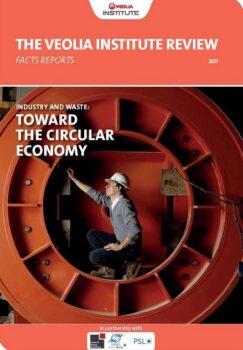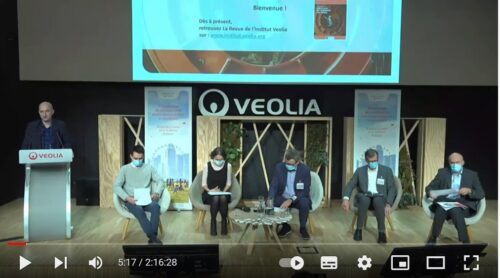
- This event has passed.

Faced with the limits of the linear production and consumption model, the transition to a circular economy has become a necessity to reinvent. Reinvented because the circular economy was the dominant model until the 19th century, supplanted by the linear economy model based on the extraction of new raw materials and the dumping of waste with the industrial revolution, the rise of hygienism and then the development of the consumer society.
Since the consumer society, the production of waste has only increased. This growth is expected to continue with the urbanization of developing countries. In 2018, the world produced 2 billion tons of municipal waste and without a change in the model this amount is expected to increase by 70% by 2050. On a global scale, only 9% of exploited natural resources are re-injected into the economic circuits.
Recycling waste is the first stage of the circular economy followed by reuse, sharing, repair and eco-design. These strategies lower the material needs of the economy, create jobs and increase the material independence of different countries. They radically challenge production policies and forms of consumption, supply chains, relationships with suppliers and customers. The circular economy requires, worldwide, real and important changes in behavior from all actors (companies, communities, consumers/citizens), supported by ambitious public policies.
The Institut Veolia has devoted the latest issue of its journal Facts & Reports to this hot topic. Franck Aggeri, Helen Micheaux and Joël Ntsondé of Centre de gestion Scientifique of Mines ParisTech Université PSL have produced and coordinated this dossier. It provides an international overview of all the socio-economic and institutional challenges that the circular economy must overcome. It is structured around three main parts entitled: a waste management model, how to change the behavior of the various players and the paths to an innovative economy. The authors of the various articles, from the socio-economic, associative and academic worlds, offer food for thought by presenting precise figures on this major theme of the 21st century.
Learn more about the coordinators of the Facts Reports issue:
- Franck Aggeri is a professor of Management at Mines ParisTech, PSL and a researcher at i3-CGS. His research and teaching focus on the circular economy, CSR and the ecological transition at the corporate level. He is co-director of the "Mines urbaines" chair dedicated to the circular economy. On the theme of the circular economy, he co-organized a conference in Cerisy in May 2021.
- Helen Micheaux defended her thesis entitled Le retour des communs au coeur de l'action collective : le cas de la responsabilité élargie des producteurs comme processus de responsabilisation et de co-régulation (2017). She is the author of Responsabiliser pour transformer : des déchets aux mines urbaines published by Presses des Mines in 2019.
- Joël Tsondé defended his thesis Entre utopie et action collective, comment accompagner la transition des territoires vers l'économie circulaire? : The case of public ordering in the construction sector (2020). He is an associate professor at EPF - School of Engineering.
Download Facts Reports Issue for free in English

Learn more about the Institut Veolia Review - FACTS Reports
La Revue de l’Institut Veolia - FACTS Reports is an international publication that facilitates cross-fertilization on topics at the crossroads of society and the environment.
Created in 2007, this interdisciplinary journal aims to disseminate good practices implemented in the field and the expertise of various actors: researchers, international organizations, NGOs, social entrepreneurs, public authorities, companies, etc.
Watch the conference debate organized by the Veolia Institute








